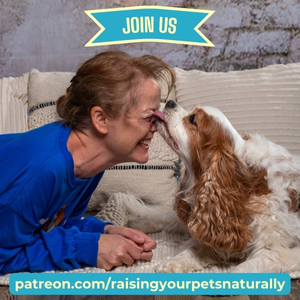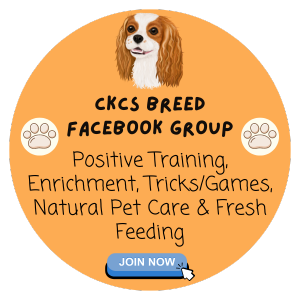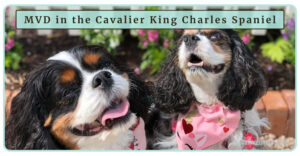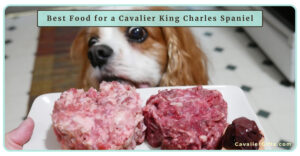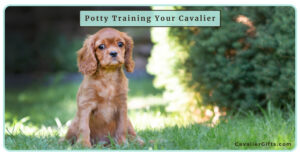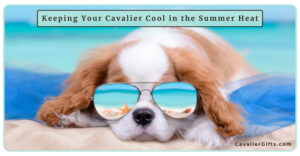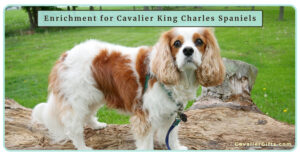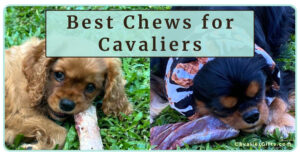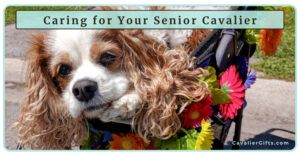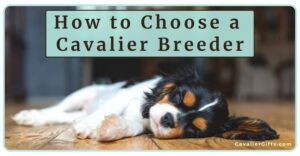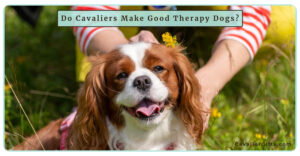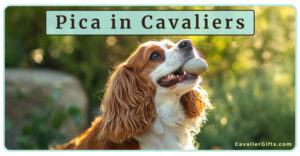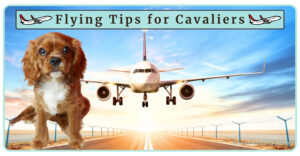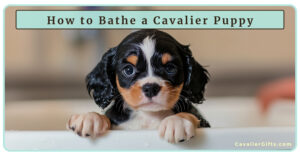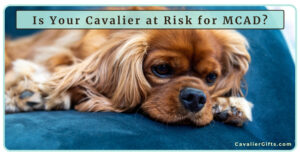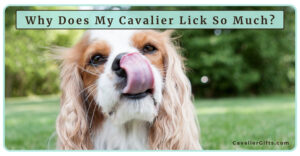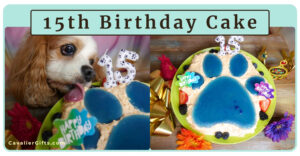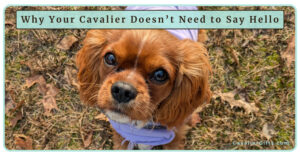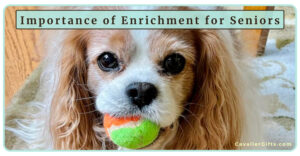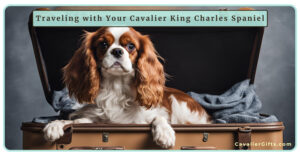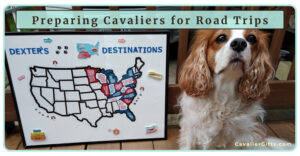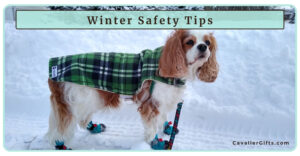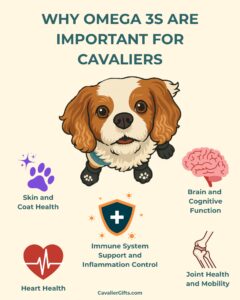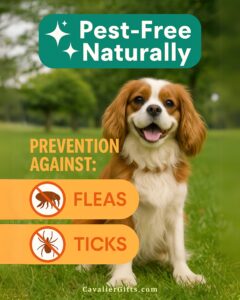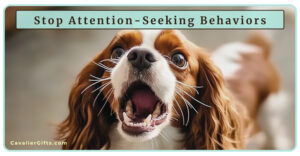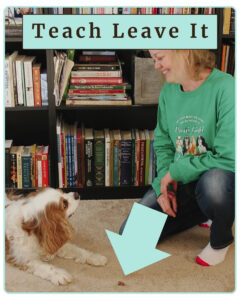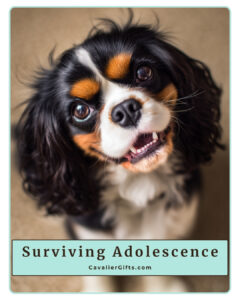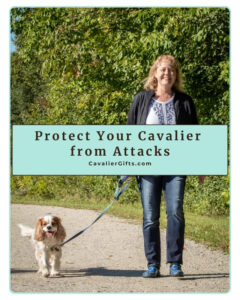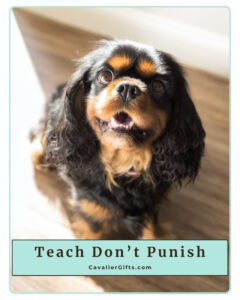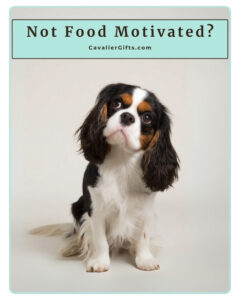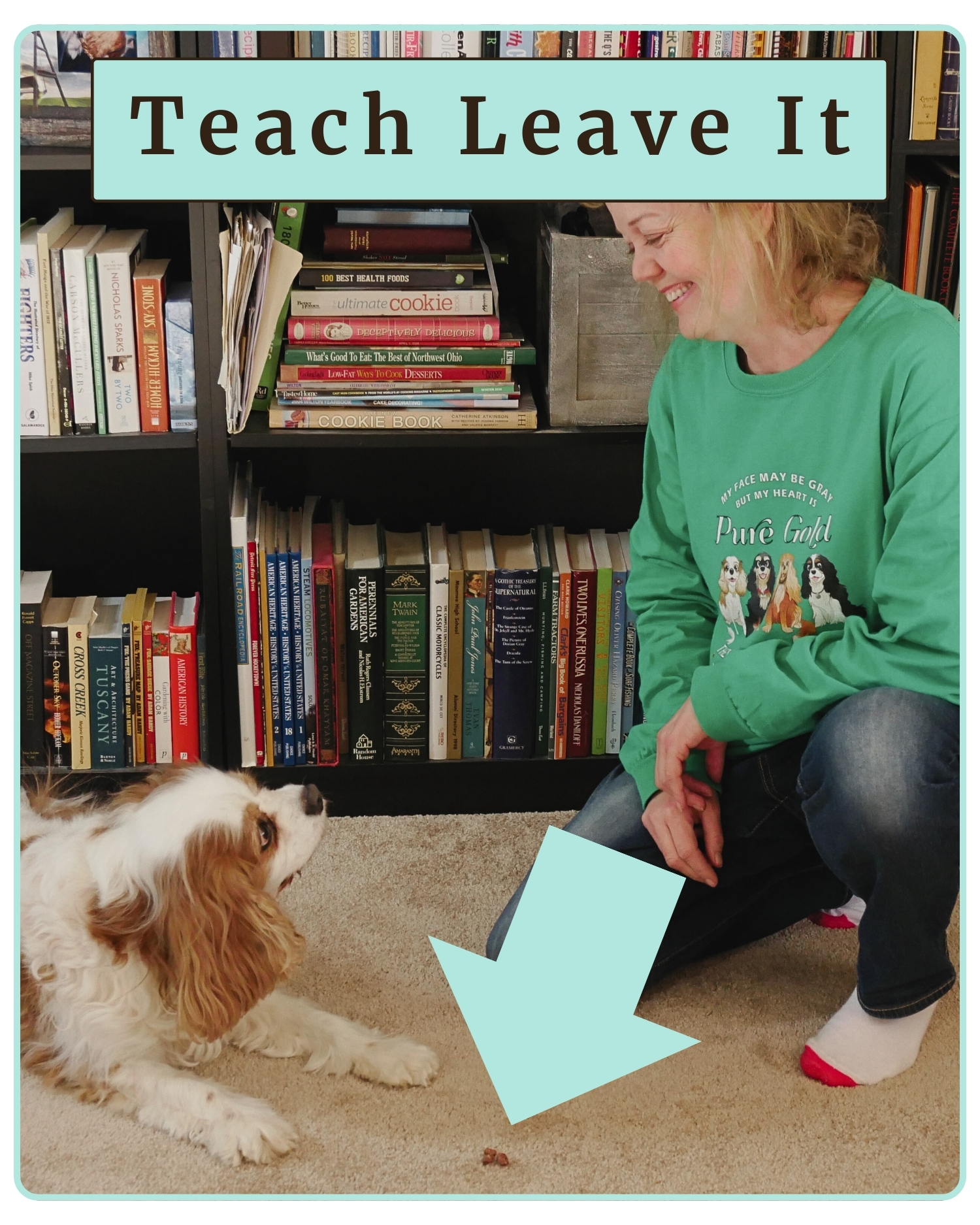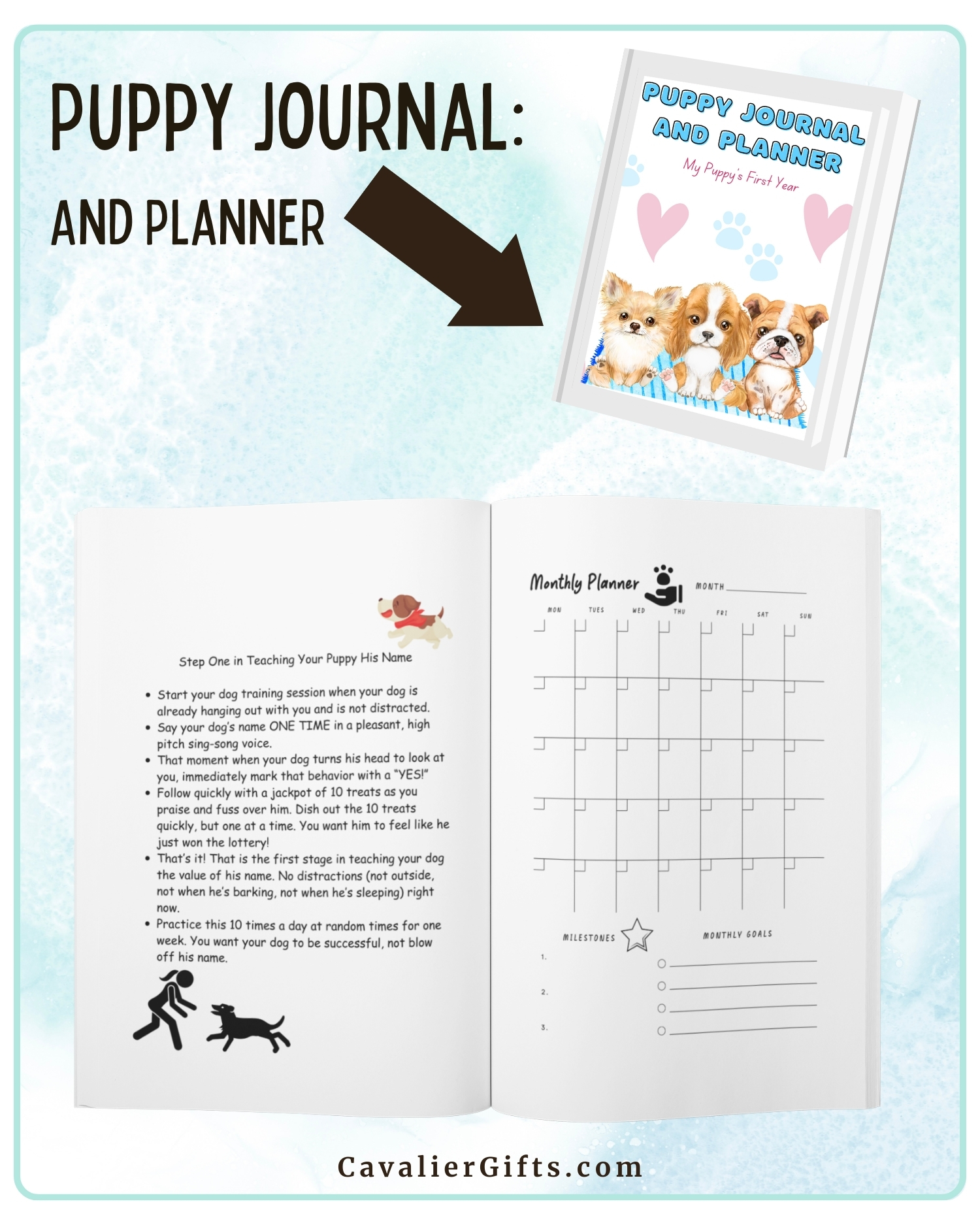How to Motivate and Train a Cavalier King Charles Spaniel
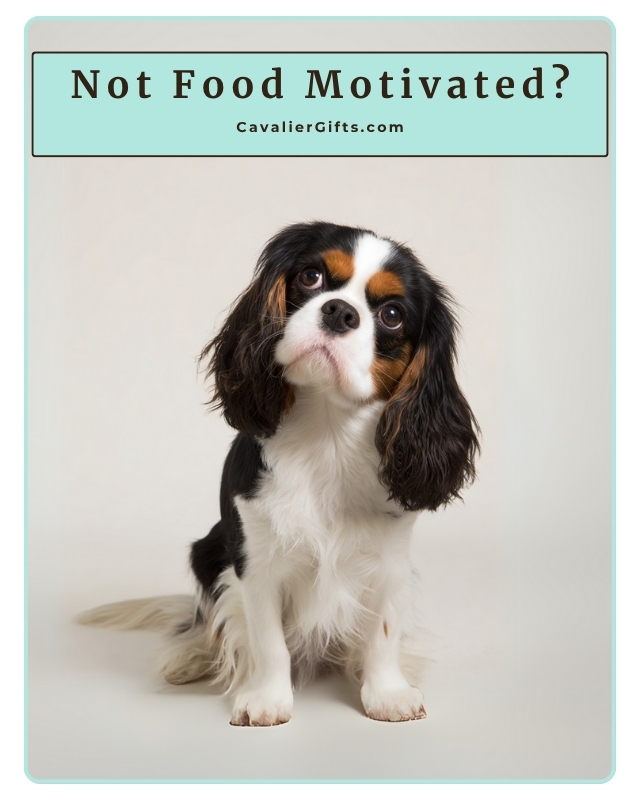

If your Cavalier King Charles Spaniel is not motivated to train, you’re not alone. This is something I hear from Cavalier families all the time: “My Cavalier is not food motivated,” or “My Cavalier just doesn’t care about training.” But in most cases, it’s not that your Cavalier doesn’t want to learn, it’s that something is getting in the way.
Here are a few common reasons your Cavalier might not be interested in training right now and what you can do to help them feel more motivated and ready to learn.
Reasons Your Cavalier Might Seem Unmotivated for Training
They are full
If your Cavalier just finished a meal or had a lot of snacks recently, they may not be interested in working for more food. Training with food rewards works best when your Cavalier is a little bit hungry, not stuffed. Try scheduling your training sessions before meals rather than after, or set aside part of their meal to use as training treats throughout the day.
They are tired
Just like us, Cavaliers have times when they are more alert and times when they just want to rest. If your Cavalier had a big play session, a long walk, or an active outing, they may need some quiet time before they are ready to focus again. Cavalier puppies especially need a lot of sleep, so training when they are rested can make a big difference. Try noticing when your Cavalier naturally seems more alert and ready to engage. That is usually the best time to practice a little training together.
They are not feeling well
If your Cavalier seems unusually uninterested in training or even in their favorite treats, that could be a sign they are not feeling well. Even mild health issues like nausea, pain, or dental discomfort can lower motivation. It is not always obvious at first, but changes in training interest can be an early clue that something is off. If this becomes a pattern, or if anything else seems different, reach out to your Cavalier’s holistic vet to rule out anything medical before moving forward with training.
Your Cavalier is overstimulated
Cavaliers take in a lot of information from their surroundings. If you are training your Cavalier in a busy or unfamiliar location, all those sights, sounds, and smells can be overwhelming. When there is too much going on, your Cavalier might not be able to focus or respond the way they usually do. This is especially common for puppies or sensitive Cavaliers who are still learning how to process the world around them.
If that happens, try moving to a quieter spot. You can even take a little break together for a sniffy walk and then go back to something really simple, like The Name Game or Hand Targeting. These familiar cues can help your Cavalier settle and build confidence again.


Your Cavalier is anxious or unsure
When a Cavalier is feeling unsure, whether it is because of a new environment, a stranger nearby, or something they cannot quite figure out, training can start to feel like too much. It is not about being stubborn or ignoring you. They are just trying to process how they feel before they can focus on learning anything new.
If your Cavalier seems nervous or anxious, the best thing you can do is slow things down. Sit with them quietly, speak gently, and let them look around without pressure. Sometimes just being there together is enough. Once they start to relax, you can offer praise and a treat or a “check it out” cue if they seem ready to explore.
The reward is not meaningful enough
When I hear that a Cavalier is not food motivated, the first thing I look at is the reward. Most of the time, it is not that your Cavalier is not food motivated. It is that the treat just does not matter enough to them at that moment. Dry biscuits or lower value treats usually do not get their attention, especially in busy or distracting places.
Start with real food. I usually go straight to meat. That might be small bits of cooked beef, turkey, or lamb. Freeze dried meat or single ingredient dehydrated treats are also great choices. These are often the best treats for Cavaliers because they are soft, tasty, and easy to eat. Just flip the bag over and check the ingredients. You want something simple that says one thing, like chicken breast or turkey. Avoid fillers or extras that do not need to be there.
You can also use freeze dried raw food, broken into tiny pieces. These are real food options and often made mostly from meat, which makes them a great choice for Cavaliers who need something healthy and high value. Many people use them during training and count them toward their Cavalier’s daily calories. It is an easy way to stay consistent with nutrition while still offering something special and rewarding.
I also avoid using liver or organ meats regularly. A little once in a while is fine, but too much liver can lead to vitamin A concerns. Some organ treats can also be too rich and cause diarrhea.


Use the right reward for the right moment
Once you find something that really works for your Cavalier, think about how and when to use it. The most rewarding treats should be saved for the harder training sessions. That might mean practicing outside, focusing around distractions, or trying something brand new. When the reward truly matters to your Cavalier, motivation naturally improves.
If they get their favorite treats for easy things like sitting in the living room, there is not much reason to work harder when training becomes more challenging. Save the cooked beef, freeze dried meat, or other special rewards for those moments when your Cavalier needs a little extra encouragement. Matching the value of the reward to the difficulty of the task helps keep your Cavalier engaged and willing to try.
Explore other forms of motivation
Not every Cavalier is motivated by food alone. Some respond better to toys, praise, or playful interaction. If your Cavalier enjoys toys, try using a favorite squeaky, a soft tug toy, or a quick game of fetch. Some Cavaliers are especially drawn to textures like fleece or rabbit fur, which can make a toy feel more exciting. Whatever it is, keep it put away when you are not training so it stays special and does not lose its value. Other Cavaliers are more motivated by attention and connection. A cheerful voice, a smile, or light praise can sometimes go further than anything you can hold in your hand. At the end of the day, your Cavalier is the one who decides what feels rewarding. It is not about what we think should work. It is about what actually matters to them.
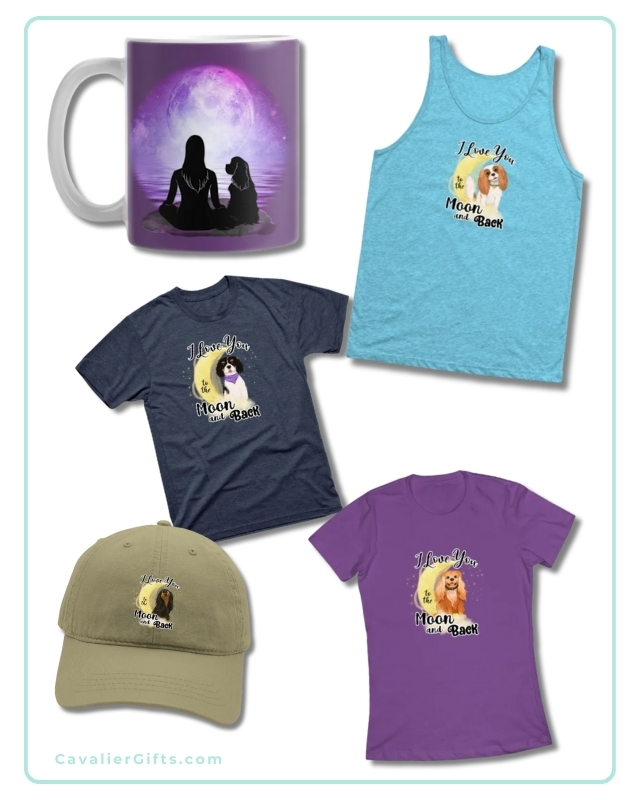

Your Cavalier can learn with the right support
If your Cavalier is not showing interest in training, it does not mean something is broken. It just means they need a little help feeling ready. That might be adjusting the environment, changing up the reward, or simply giving them time to feel more confident.
This is exactly the kind of thing we work on in my Manners, Life Skills and Foundation Training Course. If you are feeling unsure about how to move forward, I will guide you through simple, kind steps to help your Cavalier feel more focused and connected. You will learn how to use rewards that actually matter to your Cavalier, when to train, and how to build everyday habits that stick. It is self-paced, easy to follow, and I am always there if you need support.
Your Cavalier wants to connect with you. With a little support and the right setup, they will start to feel more engaged and eager to participate. You do not need to rush the process. Keep it light, keep it kind, and celebrate the small wins. They all add up.
Google Ad Below
